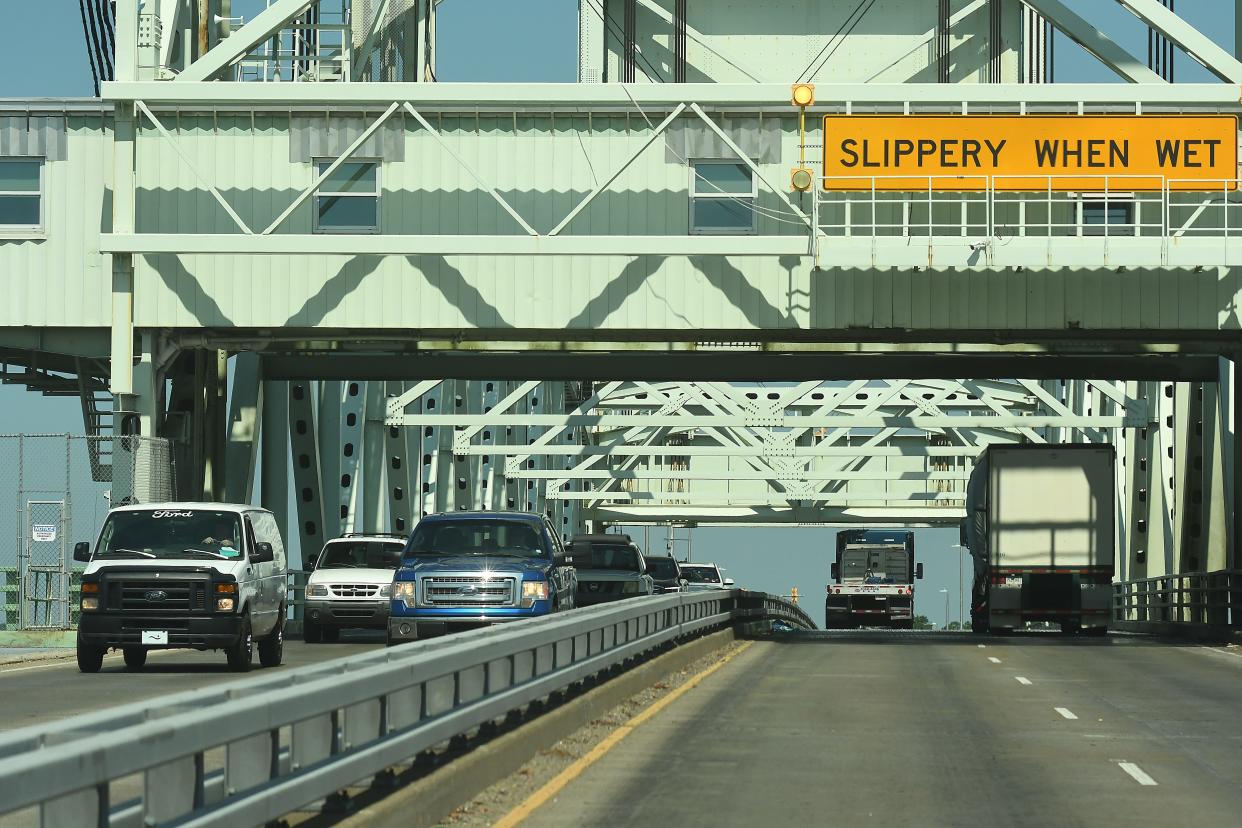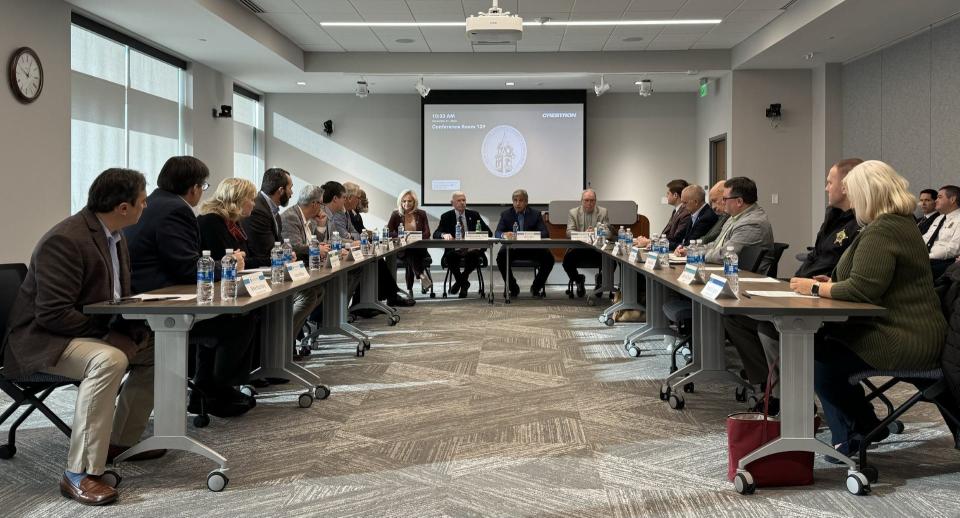Cape Fear Memorial Bridge closures will impact EMS transports. What's the plan?

When lanes begin closing on the Cape Fear Memorial Bridge in January, officials anticipate increased traffic congestion and delays on detours outlined by the N.C. Department of Transportation.
While Memorial Bridge lane closures will alter the daily travel of residents in New Hanover, Brunswick and other neighboring counties for months, one crucial effect of the closures sits at the forefront.
How will delays impact emergency medical systems (EMS) in New Hanover and Brunswick counties?
Increased transport times
Lyle Johnston, Brunswick County EMS director, said transport times, or the time it takes to transfer patients from Brunswick into New Hanover for medical treatment, are likely to increase.
On average, Johnston said Brunswick transports 450 to 500 patients monthly into New Hanover for medical treatment, depending upon the month.
Bridge closures may increase transport times for these patients by about 10 to 20 minutes, Johnston said, adding that these delays will depend on traffic and selected alternative routes.
Brunswick County EMS and New Hanover County EMS will work together to assess traffic in real time and identify the most efficient route alternatives, Johnston said. Staff from both counties are meeting regularly to prepare for the upcoming closures.
"The biggest issue that I foresee is if something happens on one of these alternative routes," Johnston said, adding that Brunswick County EMS has been in contact with Novant Health Airlink Air Transport about helicopter access in the case of serious time-sensitive emergencies.
"If we just absolutely could not get across the river for some reason, or the delay was going to be [really] long, then we would access the helicopter," Johnston said.
If the helicopter is unavailable, for example in inclement weather, Johnston said "[Brunswick County EMS is] just going to have to get over there, it's going to take a little longer, we'll use our lights and sirens ... to try to get through traffic the best we can."
Outside of time-sensitive emergencies, "most of the stuff that needs to be done, [EMS] can do in the back of the truck," Johnston said. "[Patients] might just need the finalization of what needs to be done and to be seen by a doctor once we get to the hospital."
If necessary, Johnston said Brunswick County patients, particularly those in the south of the county, could be transported into South Carolina hospitals if New Hanover Regional Medical Center was inaccessible.
Brunswick County EMS currently transports to 11 hospitals between North and South Carolina in Columbus County, New Hanover County, Brunswick County and Horry County.

The 'same methodology' with 'new tactics'
At a roundtable discussion Dec. 21, Steven Still, New Hanover County emergency management director, said EMS are equipped to handle the challenges using the same methodology used for previous disruptions, such as the Azalea Festival and tropical storms.
"The methodology that we apply has the same reporting structure, the same terminology ... we are firm in our objectives," Still said. "The only thing that changes really are the tactics."
Leaders plan to address concerns presented by the Memorial Bridge closure through a "regional approach," including collaboration from public safety officials, local government, NCDOT and other community organizations across Southeastern North Carolina.
"Every single public safety respondent, whether that's law, fire, EMS, they [will] have complete and direct communications with the project management on site at the [bridge]," Still said, noting that tactics will need to remain flexible as the project progresses.
"We understand that many plans won't survive the first shot," Still said.
Establishing an Incident Command Center
Emergency management staff are establishing an Incident Command Center at the new Wilmington City Hall at Skyline Center, according to a briefing document provided by the city of Wilmington and New Hanover County.
Staff will use existing camera infrastructure and the "ideal vantage point" of the ninth floor to "evaluate and respond in real time to traffic conditions," according to the document.
Still said views of Third Street, the Memorial Bridge and the Isabel Homes Bridge from this space will provide advantages, adding that when traffic disruptions are detected early on, public information officials will be able to "get the message out early and often."
Johnston said the most significant aspect of the command center for Brunswick County EMS will be the camera surveillance, allowing for real-time traffic updates.
New Hanover and Brunswick County 'dual response'
In areas surrounding the bridge, where officials "[anticipate] traffic issues," Brunswick EMS and New Hanover EMS are discussing the use of "dual dispatch" Johnston said. "If we couldn't get to [the scene] from our side, [New Hanover EMS] may be able to, or vice versa."
Johnston said if an emergency call came in from one of these defined dual dispatch areas, 911 call centers in both counties would coordinate a dual dispatch of units from both counties to the scene.
"The first unit that gets on scene, if they get there and they can handle it, then they would cancel the other unit," Johnston said, adding that dispatch units are able to communicate with one another through radio.
When asked what he would want to convey to residents who are concerned about the potential impacts of the bridge closure on emergency medical care, Johnston said he doesn't "want citizens changing what their normal healthcare streams are because of the traffic."
"We will take care of you, and we will get you where you need to go, it may just take a little extra time," Johnston said.
This article originally appeared on Wilmington StarNews: How will EMS be impacted by the Cape Fear Memorial Bridge closure?

